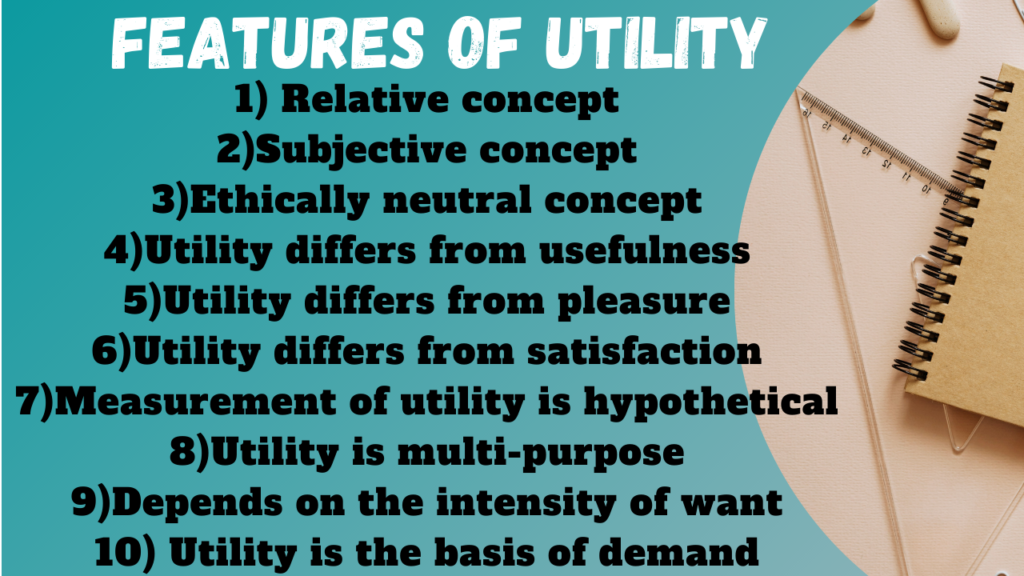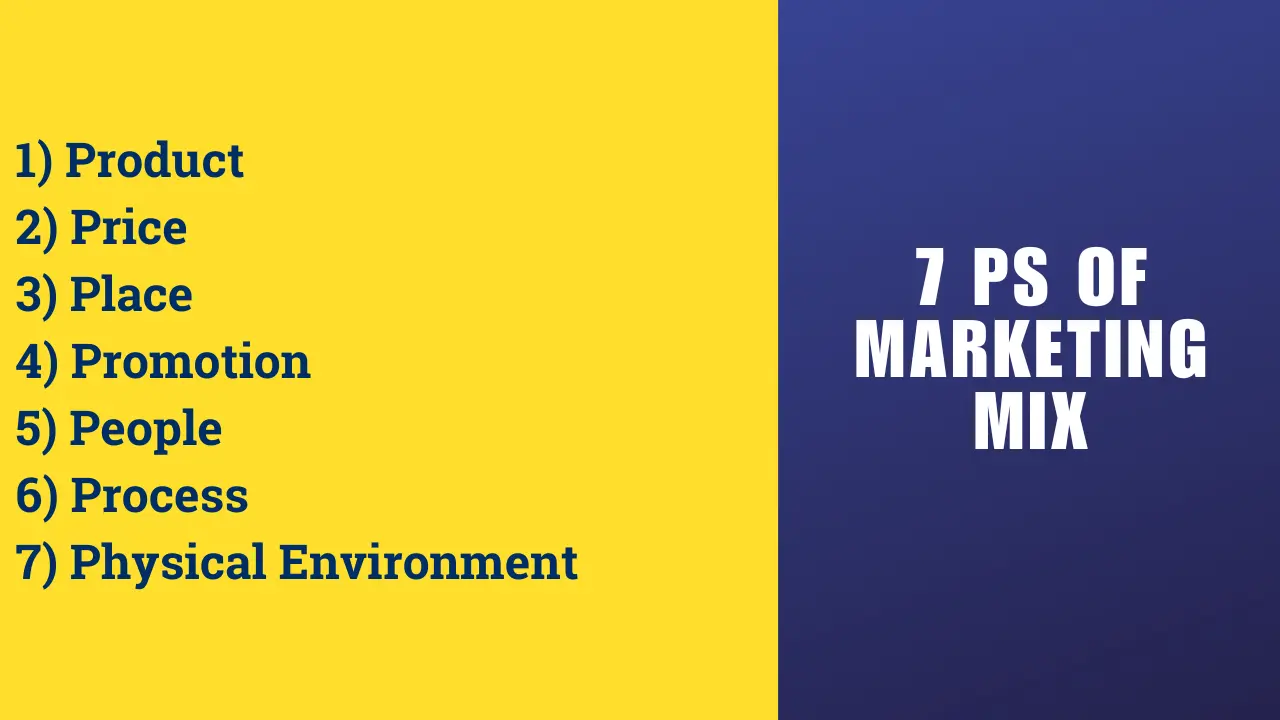10 Features of Utility (What are the Features of Utility?) | Free Economics Articles
Features of Utility

What are the features of utility?
Meaning of Utility:
A consumer usually decides his demand for a commodity based on the utility (or satisfaction) that he derives from it.
What is utility?
Utility is the capacity of a commodity to satisfy human wants. In other words, utility is the want satisfying power of a good. The more the need for a commodity or the stronger the desire to have it, the greater the utility derived from the commodity.
The utility is subjective. Different individuals can get different levels of utility from the same commodity. For example, someone who likes chocolates will get a much higher utility from chocolate than someone who is not so fond of chocolates.
Also, the utility that one individual gets from the commodity can change with change in place and time. For example, utility from the use of a room heater will depend upon whether the individual is in Ladakh or Chennai (place) or whether it is summer or winter (time).
- Microeconomic Definition | Historical Review of Microeconomics
- Scope Or Nature of Microeconomics
- Exceptions of Law of Diminishing Marginal Utility
- Criticism of Law of Diminishing Marginal Utility
The following are the features of utility:
1) Relative concept :
Utility is related to time and place. It varies from time to time and from place to place. For example, (i) Woollen clothes have a greater utility in the winter. (ii) Sand has greater utility at the construction site than at the seashore.
2) Subjective concept :
It is a psychological concept. Utility differs from person to person. This is due to differences in taste, preferences, likes, dislikes, nature, habits, profession, etc. For example, a stethoscope has utility to a doctor but not to a layman.
3) Ethically neutral concept:
The concept of utility has no ethical consideration. It is a morally colorless concept. The commodity should satisfy any want of a person without consideration of what is good or bad, desirable or undesirable. For example, a knife has the utility to cut fruits and vegetables as well as it can be used to harm someone. Both wants are of different nature but are satisfied by the same commodity. Thus, utility is ethically neutral.
4) Utility differs from usefulness:
Utility is the capacity of a commodity to satisfy human wants, whereas usefulness indicates value in the use of the commodity. For example, milk has both utility as well as usefulness to a consumer, while liquor has utility only to an addict, but has no usefulness.
5) Utility differs from pleasure :
A commodity may possess utility but it may not give any pleasure to the consumer. For example, injection for a patient has utility because it cures the ailment but it hardly gives any enjoyment or pleasure to him.
6) Utility differs from satisfaction:
Utility is a cause of consumption, satisfaction is the end result of consumption. They are interrelated but still different concepts. For example, a thirsty person drinks a glass of water since water has the capacity to satisfy thirst. Utility of water is the cause of consumption and the satisfaction derived is the end result of consumption.
7) Measurement of utility is hypothetical :
Utility is an abstract concept. Cardinal or numerical measurement of utility is not possible. For example, a thirsty person after drinking water may derive a higher or lower level of utility. Thus, a utility can only be experienced and found either positive, zero, or negative. The negative utility is called disutility.
8) Utility is multi-purpose :
A commodity can satisfy the want of more than one person, it can also be put to several uses. For example, electricity can be used to serve many purposes and for many people at some point in time.
9) Utility depends on the intensity of want :
Utility depends on the intensity of a want. The more intense the want, the greater will be the utility. As and when the urgency of want declines, utility diminishes. For example, a hungry person finds more utility in food,
then a person who is not hungry.
10) Utility is the basis of demand :
A person will demand a commodity only if it gives utility to him. For example, a sick person has utility in medicines hence, he demands medicines.


